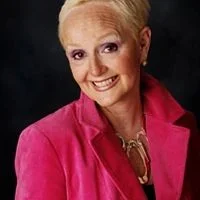Baby Boomer
Whenever you hear the term “Baby Boomer” it references to someone who was born between 1946 and 1964.
The moniker was coined as a way to represent all the people that were born out of the spirit that reigned after the end of the World War II, a spirit of hope for the future. After the feeling of being so close to mass destruction, with uncountable death and destruction all over, people started “rebuilding” and part of that translated to having babies and procreating. So it only made sense that people born out of this baby boom – of approximately 70 million births! - should be called a Baby Boomer.
The World War II and the subsequent baby boom made the economy also boom, as it created a bigger demand. The government also raised to the occasion and created several social programs to encourage the spike on nativity, so Baby Boomers were raised in an environment of extreme positivity, hope, and effortless means, in contrast to their parents, who were born during the Depression era. Baby Boomers are, in general, hard-working people with not many fears of what’s to come – which many times translates to a sense of entitlement.
As a generational extract, the Baby Boomer Generation was/is Real Estate’s best friend. Real Estate is their go-to type of investment. Their life narrative used to consist in: get rich – mortgage a house – mortgage a second house– sell the first house for more $$$ – then mortgage a bigger one, rinse and repeat. This investment boldness – that could easily be called “financial irresponsibility” – lead to a lot of debt, and basically created the environment for the 2008 housing market crash and the Great Recession. Independently of that, the Baby Boomers continue to be the generation that bought and sold the most number of houses in all American history, and because of Agequake, it appears they will continue to be so, for a long long time.
Speaking about Agequake, the main question regarding the Baby Boomers Generation and real estate nowadays - after the whole economy has recuperated and the real estate market is back to a good health - deals with the fact that, thanks to medicine advances, the boomers will live longer than the generations before them, which places a heavy burden on social security, leaving the Millennials (the generation born between 1982 and 2004) in a noticeable disadvantage, shifting the market back to Boomers (because they have all that social security money plus their 65+ years of earning money and belongings) and forcing Millennials to “stay in line” more for a piece of the pie, or – which is the route they seem to be getting, to the baby boomers distaste – altogether give up their hopes on that pie and look for some other source of nurture. That’s why Millenials have so far been more drawn to personal experiences like traveling and studying, and rather rent than buying a house.
Real Estate Tip:
Every baby boomer knows that to do well with your real estate investments you need a real estate agent by your side! Browse The OFFICIAL Real Estate Agent® to find the right one for you!
Popular Real Estate Terms
Person's title to real estate giving him exclusive power and rights owner it. ...
In insurance, an estimable risk for the purpose of calculating an adequate and reasonable premium providing sufficient resources should the company need to pay a claim while maintaining ...
Property taken over by the government because the owner has failed to pay taxes on it. The property may revert back to the owner when the taxes are paid. If not, the government may sell the ...
Used to compute the tax on a specified taxable income. The marginal tax rate usually increases as the taxable income rises. ...
Thin layer or slate of baked clay, linoleum, or some other material that is used for covering floors, roofs, or as an ornament in a building. ...
Horizontal supports for the ceiling of a structure. ...
A lease having two or more joint lessees who share a common liability with a lessor. Under a joint and several liable lease the lessor may demand the full terms of the lease from one or all ...
The act or removing or dispossessing or expulsion of an individual from a premise by force or law. ...
Series of intersecting lines dividing a map or chart into equal sections. Series of intersecting bars, wires or support as in a grating or supports in a dropped ceiling. ...

Have a question or comment?
We're here to help.